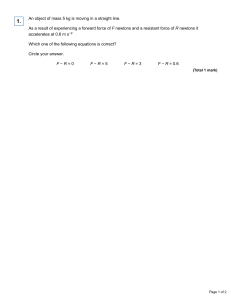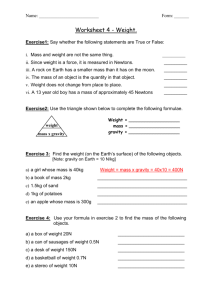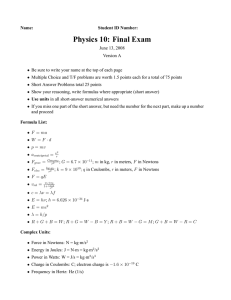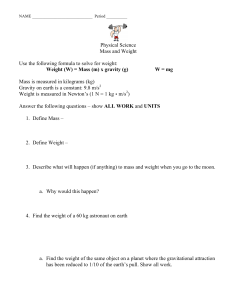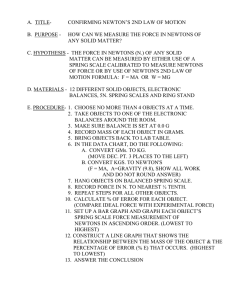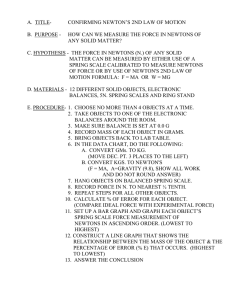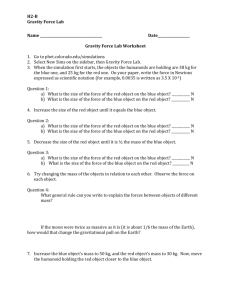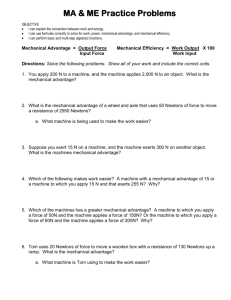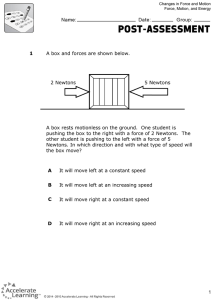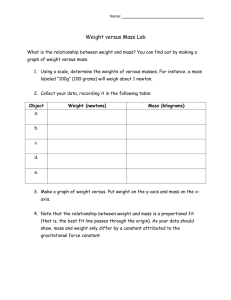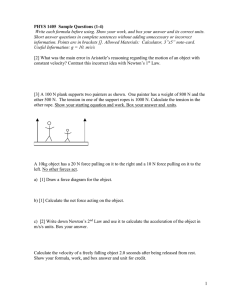Mass vs. Weight - Tri
advertisement
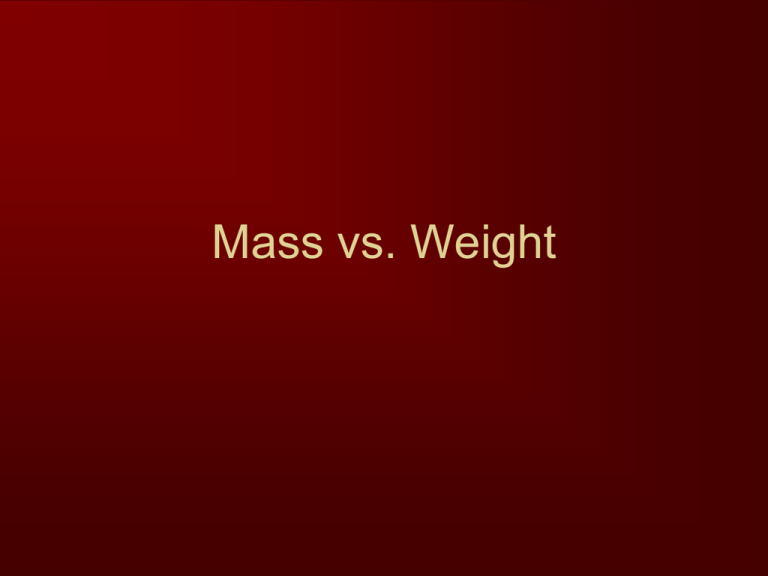
Mass vs. Weight Definitions Mass – Amount of stuff (matter) in an object Weight – Force exerted on an object because of a planet’s gravity Related, but not the same! Mass ≠ Weight! How to Find Mass Two types of mass! • Gravitational Mass 2. Inertial Mass A Video How to Find Weight 1. Weigh it! Like all forces, you can measure weight (force of gravity) with a spring scale! 2. Calculate it! But how? Discovering the Relationship Between Mass and Weight - OR – Why Pirates Have Pet Toucans and Not Pet Emus Arg? A Sample Graph (Thanks to Jacob and Teddy) How Many Newtons? 14 12 Force in Newtons 10 y = 10.047x + 0.055 R² = 0.9981 8 6 4 2 0 0 0.2 0.4 Mass In Kg0.6 0.8 1 1.2 1.4 The Importance of the Slope How Many Newtons? 14 y = 10.047x + 0.055 R² = 0.9981 12 Force in Newtons Tells you how much the weight (Fg) varies with mass: If you increase the mass by 1 kg, how much do you increase the weight by? 10 8 6 4 2 0 0 0.2 0.4 0.6 Mass In Kg 0.8 Our calculated slopes 1 1.2 1.4 Experimental Result g = 9.81 N/kg To calculate the weight, w, of an object of mass m: w = m∙g = 9.81 ∙ m Example Calculations 1. What’s the weight of a 1.2 kg toucan? w = mg = (1.2 kg)(9.81 N/kg) = 11.7 N 2. What’s the weight of a 97 kg emu? w = mg = (97 kg)(9.81 N/kg) = 952 N Weight Varies, Mass Does Not If you move to a different location, the amount of stuff in you doesn’t change, so your mass is always the same. BUT the force of gravity may be different, causing your weight to be different. Various Values of g and Effect on Weight Weight on Earth Weight on other Planets A Side-by-Side Comparison Mass Symbol Unit How to Determine m kilogram (kg) Usually measure Constancy Object has same mass everywhere Weight w or Fg Newton (N) w = m∙g OR w = 9.8 ∙m Object’s weight depends on location (planet, etc.) A Cheesy (but Effective) Video Comparison
